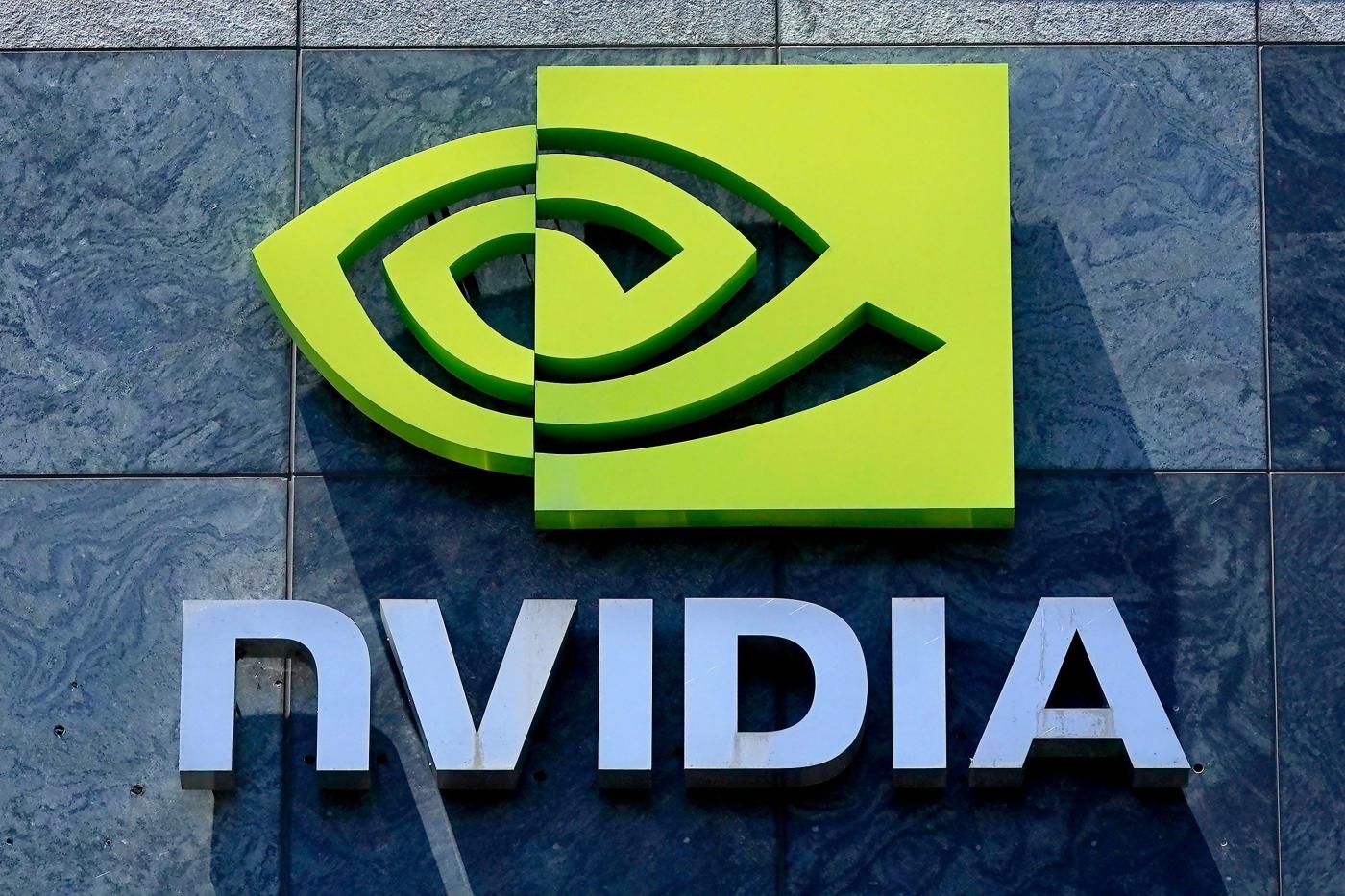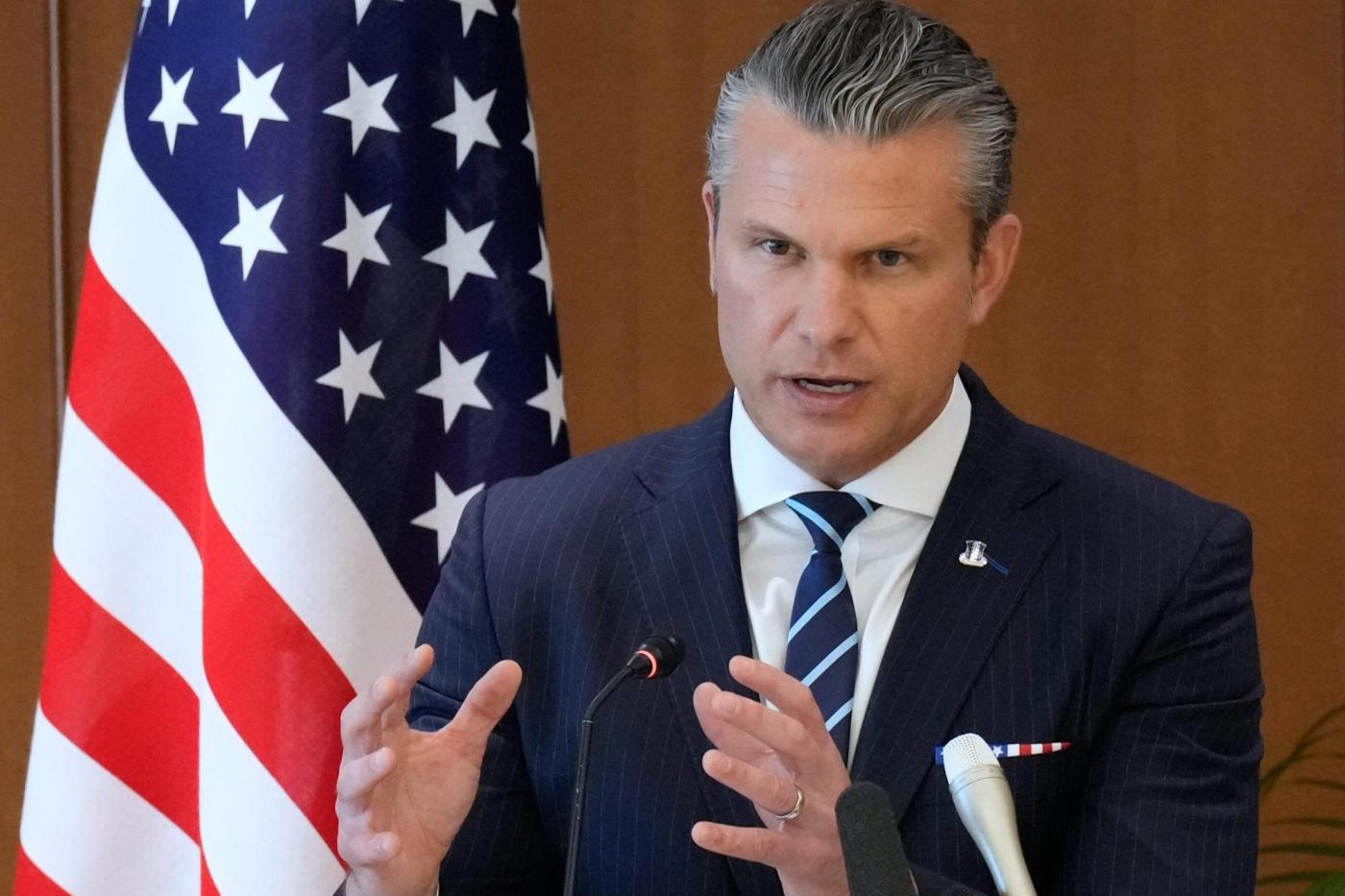(Bloomberg/Mackenzie Hawkins and Josh Xiao) — Nvidia Corp. Chief Executive Officer Jensen Huang still hopes to sell chips from the company’s Blackwell lineup to customers in China, though he has no current plans to do so, he told reporters Friday.
Asked whether Nvidia intends to sell AI accelerators from that family of products in the Asian country, the tech chief said, “I don’t know. I hope so someday.”
Huang’s comments came a day after US President Donald Trump said he didn’t discuss the prospect of Blackwell chip sales in a meeting with Chinese counterpart Xi Jinping, despite saying earlier that he would do so. US Trade Representative Jamieson Greer, asked whether Blackwell chip sales to China would be discussed more going forward, said “I don’t think that’s on the table right now.”
Related Articles
Alphabet sales beat estimates on Google Cloud unit growth
Meta’s higher spending in pursuit of AI payoff shakes investors
Trump says Nvidia chip talks with Xi didn’t cover Blackwell
Amazon details Bay Area cutbacks that will erase hundreds of jobs
New Tesla update adds Mad Max mode, deletes option to set top speed
Huang, speaking Friday in South Korea, expressed optimism that might change. “No decisions have been made, and we’ll see how it turns out,” said Huang, 62, of Nvidia’s Blackwell export plans. “I hope it turns out well.” The Nvidia chief said earlier this week that the company hasn’t applied for Washington’s permission to sell Blackwell chips to China, permits that are required under export controls first imposed in 2022.
The Blackwell family of chips is Nvidia’s latest generation of artificial intelligence semiconductors and the industrial standard for developing and running large language models like OpenAI’s ChatGPT. The processors have capabilities that far surpass those of semiconductors that Washington effectively banned from export to China several years ago, as well as anything that’s currently available from Chinese competitors like Huawei Technologies Co.
Selling those products to China, as Huang hopes to do, would require a dramatic departure from the Trump administration’s stated approach to the tech competition between the world’s two largest economies. Still, the president had put it on the table. Trump said months ago that he’d be open to allowing China shipments of an unspecified, downgraded Blackwell chip. Ahead of his meeting with Xi, Trump said he’d discuss the “super duper” Blackwell accelerators with the Chinese leader — remarks that helped make Nvidia the first $5 trillion business by market value.
But while Trump and Xi did discuss Nvidia’s access to China in general, Trump said after the meeting, those talks did not touch on Blackwell chip approvals: “We’re not talking about the Blackwell,” Trump told reporters aboard Air Force One. “That just came out yesterday.”
Back in Washington, China hawks breathed a sigh of relief. Many US officials had worried that Trump, in an effort to reach a broader trade deal with Beijing, might give away what they consider to be the country’s strongest technological asset — and one with significant national security implications. Concern about Blackwell chip sales to the Asian country is one of the primary motivations behind a bipartisan congressional measure that could have major implications for Huang’s hopes for the China market.
The legislation, an earlier version of which has already passed the Senate, would require chipmakers like Nvidia to prioritize American customers before selling chips to buyers in arms-embargoed countries, including China. Hours after Trump and Xi concluded their meeting, lawmakers introduced the highly-anticipated bill to the US House of Representatives.
One congressional staffer, who requested not to be identified, described a sense of uncertainty akin to a fog of war when asked how Trump’s stance on Blackwell chips was playing on Capitol Hill.
Nvidia has criticized trade restrictions as hamstringing US competitiveness and lobbied aggressively against chip export controls more broadly. “I think it’s really good for America and it’s really good for China that Nvidia could participate in the Chinese market,” Huang said Friday. Nvidia’s argument is that restricting Chinese AI developers from using American chips will only push them toward domestic alternatives.
To be sure, participating in China would also be really good for Nvidia: the world’s most valuable company wrote down billions of dollars in revenue earlier this year when Trump’s team restricted sales of a less-advanced processor called the H20. Washington later reversed course and greenlit H20 chip shipments, but Beijing has discouraged Chinese companies from using those accelerators.
Trump said Thursday that Nvidia and the Chinese government will have to keep talking about the chipmaker’s access to the Asian nation’s market, which is the world’s biggest for semiconductors. Huang, though, said the topic didn’t come up during his meeting Friday with Ren Hongbin, Chairman of the China Council for the Promotion of International Trade.
“We were just talking mostly about enjoying each other’s company,” Huang said.
–With assistance from Mark Anderson and Catherine Lucey.
(Updates with Greer comments starting in third paragraph.)
More stories like this are available on bloomberg.com
©2025 Bloomberg L.P.





